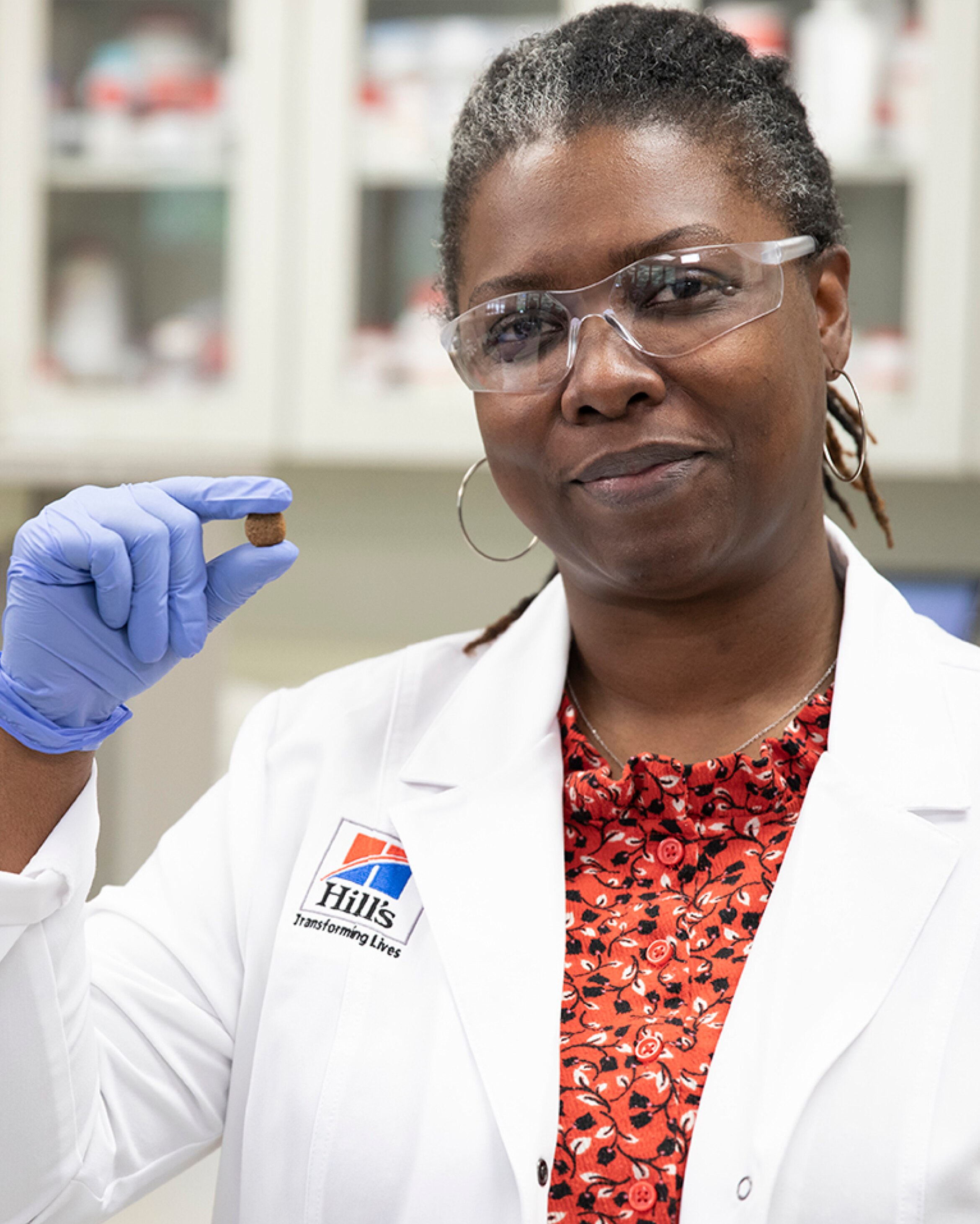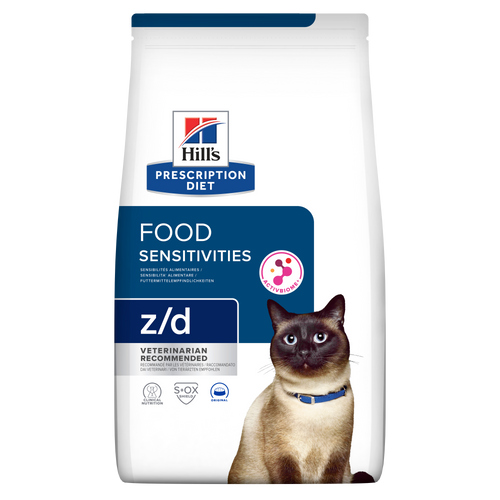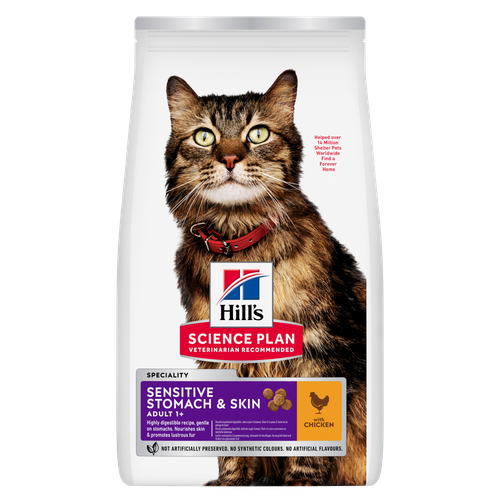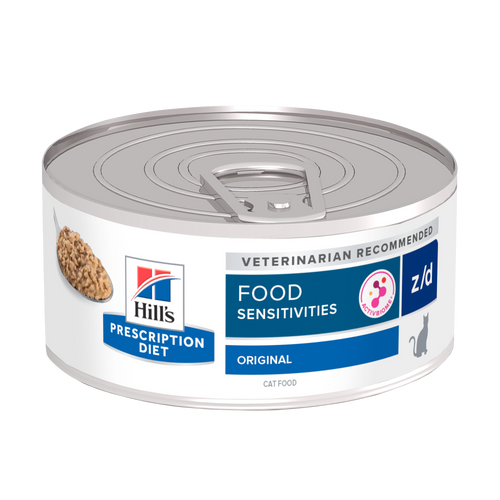
-
Find the right food for your petTake this quiz to see which food may be the best for your furry friend.Find the right food for your petTake this quiz to see which food may be the best for your furry friend.Featured products
 Perfect Digestion Large Breed Puppy Food
Perfect Digestion Large Breed Puppy FoodPrecisely balanced nutrition with Hill's ActivBiome+ prebiotic blend actively contributes to supporting digestive health and overall well-being to help your pet feel their best
Shop Now Perfect Digestion Small & Mini Adult Dog Food
Perfect Digestion Small & Mini Adult Dog FoodHill's Science Plan Perfect Digestion Small & Mini Breed Adult Dog Food with Chicken & Brown Rice supports ultimate digestive well-being & a healthy microbiome.
Shop Now Small & Mini Mature Adult 7+ Dog Food
Small & Mini Mature Adult 7+ Dog FoodHill's Science Plan Small & Mini Breed Mature Adult Dog Food with Chicken is a complete pet food, specially formulated with ActivBiome+ Multi-Benefit Technology.
Tailored nutrition to support graceful ageing in small dogs. Specially made with a synergistic blend of nutrients for energy & vigor.Shop NowFeatured products Hypoallergenic Dry Cat Food
Hypoallergenic Dry Cat FoodHILL'S SCIENCE PLAN Hypoallergenic Adult cat food with egg & insect protein is a complete pet food for adult cat 1–6 years old. It's formulated for cats with delicate skin and stomach, with limited high quality novel protein sources & no grain.
Shop Now Kitten Food
Kitten FoodTender chicken chunks in gravy for kittens, with omega-3s for healthy eye & brain development and high-quality protein to support muscle growth. With balanced minerals to promote strong bones & teeth.
Shop Now Hairball & Perfect Coat Adult Cat Food
Hairball & Perfect Coat Adult Cat FoodHill's Science Plan HAIRBALL & PERFECT COAT Adult cat food with Chicken is specially formulated to effectively help avoid hairball formation in adult cats while promoting a beautiful coat. Thanks to its mix of essential Omega-6 fatty acids, this food benefits the cat's skin and fur keeping them healthy and shiny. Our Advanced Fibre Technology helps reduce hairballs by naturally promoting their passage through the gut. This food is formulated with high-quality protein for a perfectly balanced, great-tasting recipe.
Shop Now -
Dog
- Dog Tips & Articles
-
Health Category
- Weight
- Food & Environmental Sensitivities
- Urinary
- Digestive
- Joint
- Kidney
-
Life Stage
- Puppy Nutrition
- Adult Nutrition
- Senior Nutrition
Cat- Cat Tips & Articles
-
Health Category
- Weight
- Skin & Food Sensitivities
- Urinary
- Digestive
- Kidney
-
Life Stage
- Kitten Nutrition
- Adult Nutrition
Featured articles Understanding Your Pet's Microbiome
Understanding Your Pet's MicrobiomeLearn what a pet's microbiome is, how it contributes to your pet's gut & overall health, and why nutrition is important in maintaining healthy microbiomes.
Read More Pet Food Storage Tips
Pet Food Storage TipsWhere you store your cat and dog food can make a big difference in the quality and freshness once it is opened. Here are some common questions and recommendations for optimal storage for all of Hill’s dry and canned cat and dog food.
Read More The Right Diet For Your Pet
The Right Diet For Your PetLearn what to look for in healthy pet food & nutrition, including ingredients, quality of the manufacturer, your pet's age, and any special needs they have
Read More -
Food allergies in cats
Food allergies in cats
Does your cat have signs of food allergies?
If a cat vomits frequently, has diarrhoea, irritated skin, a poor coat condition or hair loss, then they may have food allergies. The most common symptoms are digestive upset or skin irritation. These signs can be long-term, recurring and should be noted to your vet.














What causes allergies in cats?
One of the most difficult things on a cat’s path to improvement is determining what is causing their allergies. Food allergies in cats are caused by a reaction to a particular ingredient, usually a protein. Food allergies may last a lifetime so the ingredient must be permanently removed from your cat’s diet.
What causes allergies in cats?
One of the most difficult things on a cat’s path to improvement is determining what is causing their allergies. Food allergies in cats are caused by a reaction to a particular ingredient, usually a protein. Food allergies may last a lifetime so the ingredient must be permanently removed from your cat’s diet.


Environmental allergies
A cat may react to certain substances in their environment — like grasses, pollen, mold or biting insects. Removing the offending allergen along with a multimodal approach can help reduce the adverse signs of environmental allergies in cats.


Food allergies
Cats may experience reactions to certain ingredients, and they are identified through food elimination trials conducted by your veterinarian. A food elimination trial is a process of finding and removing the food ingredient causing skin issues or digestive upsets. Luckily, food allergies are uncommon in cats.
Managing a cat’s allergies
Managing a cat’s allergies can be a challenging process, and your first step should be visiting your veterinarian. They will help you find the right combination of nutrition, medication, and/or topicals for your cat.


Trust
Living with a cat with food allergies can cause you both to be restless, but the road to improvement will require time, patience and trust in your vet. Remember — just like humans, every cat is unique, and the best solution will come from working with a professional to address your pet’s specific needs. Together, you’ll get on the right track to helping your best friend feel like their best self.


Nutrition
Clinical nutrition plays an important role in the management of signs associated with allergies in cats. The right nutrition can promote healthy skin from within and help alleviate your cat’s signs quickly and long-term. Even with treatment, some cats may have recurring signs that will require adjustments along the way, and your veterinarian will be a helpful resource in managing your cat’s allergies


Medication
A vet may prescribe medication to help alleviate your cat’s signs of allergies. If you are wondering what you can give your cat for allergies, only give medication as recommended by your vet.


Topicals
Topicals can be used for managing allergies in cats. There are various deliveries for topicals like shampoos, lotions, sprays or ointments. Reach out to your veterinarian to ensure a specific topical is appropriate for your pet’s skin condition and life stage.


Understanding nutritional support for food allergies
You’ll want to ask your vet about a few things when it comes to a suitable cat food for food allergies. Ask about clinical nutrition cat food with a novel protein or hydrolysed protein that is unlikely to cause a reaction.


Time to see a veterinarian?
If you notice behaviour changes or sense something is off with your cat, it may be time to schedule a vet visit.
You also may want to ask your vet if clinical nutrition would be appropriate for your cat. Hill's Prescription Diet foods are developed by a team of Ph.D. nutritionists and veterinarians, and require a vet recommendation for purchase. Schedule an appointment so your vet can assess your pet's health and nutritional needs.
More products

Formulated to reduce skin & digestive signs from food intolerances

Hill's Science Plan Sensitive Stomach & Skin Adult Cat Food with Chicken is a complete pet food for adult cats, supporting their digestive health & optimal skin care.

Formulated to reduce skin & digestive signs from food intolerances

